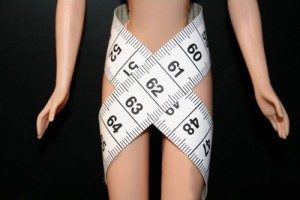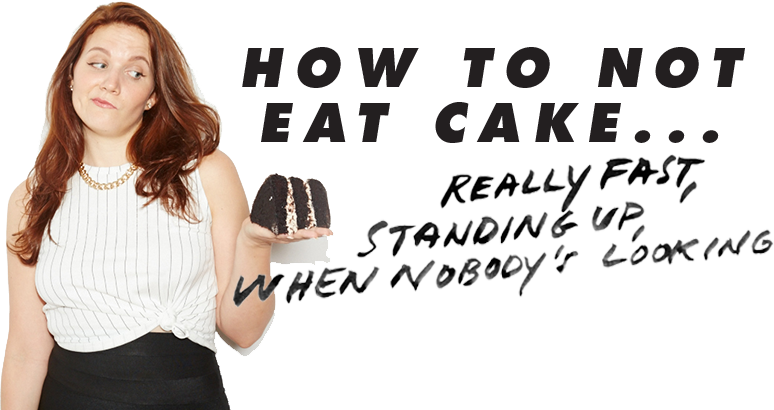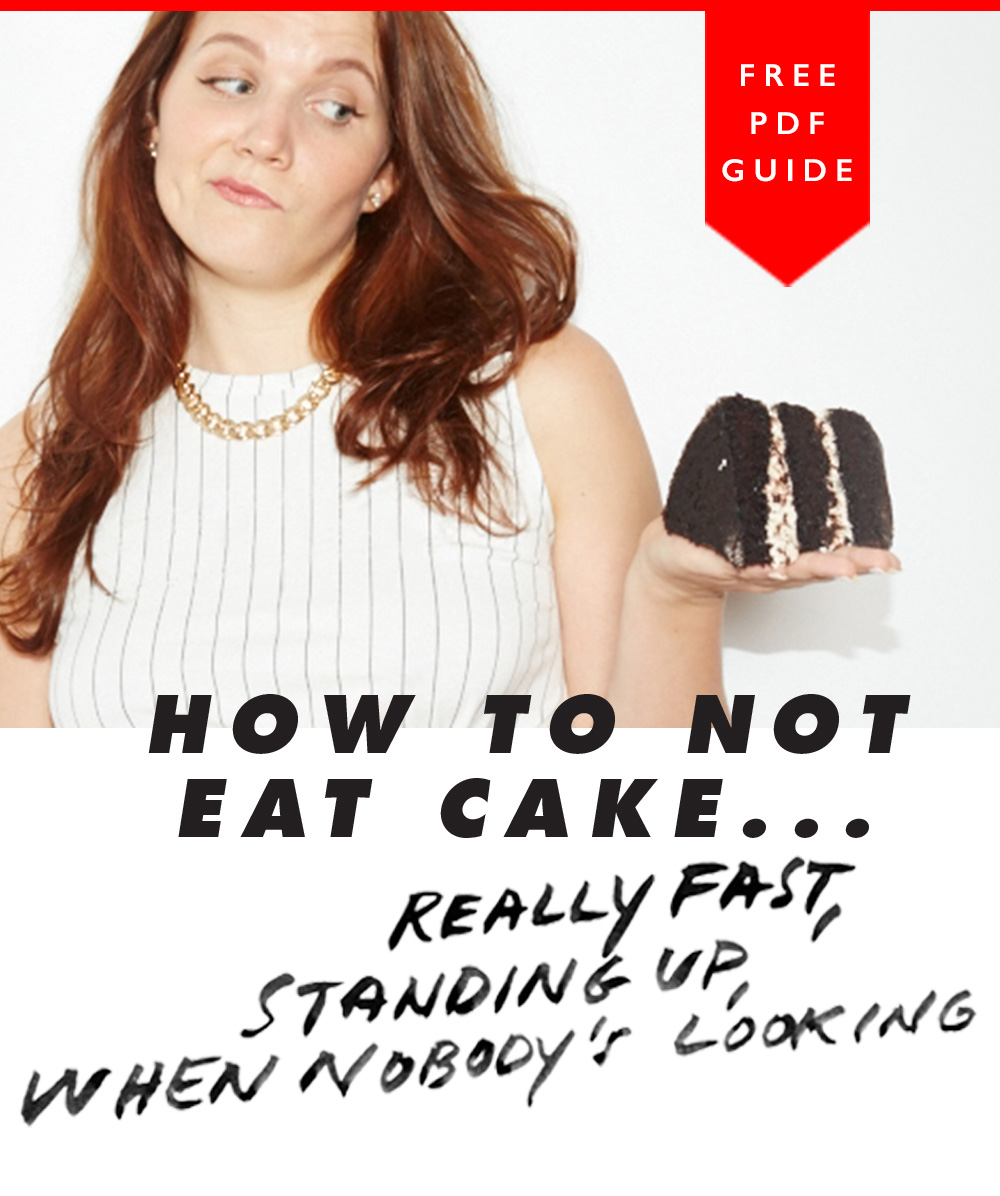
If “dieting” doesn’t work, then what?
 Last week I wrote about all the ways people continue to diet without realizing they’re dieting (e.g. “I don’t diet… I just try not to eat too much” or “I just try to avoid ‘fattening’ foods” or some other attempt at weight control through forced behavioral modification).
Last week I wrote about all the ways people continue to diet without realizing they’re dieting (e.g. “I don’t diet… I just try not to eat too much” or “I just try to avoid ‘fattening’ foods” or some other attempt at weight control through forced behavioral modification).
After making clear that these kinds of subtle attempts at weight control often result in binge-eating, increased emotional eating, and generally feeling crazy around food (just like traditional diets),
one reader responded with the very important question, of “if dieting doesn’t work…what does?”
This is a big question (the answer to which is the focus of my entire career), but here are a few ideas…
1. Replace your attempts at eating for weight control, with attempts at eating for actual health (and/or holistic well-being, including mental health).
Interestingly enough, eating vegetables, working out, managing blood sugar, and otherwise making health-supporting choices, improves people’s health — irrespective of whether or not they lose a single pound! And there’s a ton of evidence to suggest that people who make healthful choices for the purpose of improving true health indicators (like blood sugar cholesterol, feeling energized, etc.) tend to sustain those behaviors much more effectively than those who attempt behavioral changes for the direct purpose of weight manipulation. (Read: they binge-eat less, and are less likely to fall on and off the wagon).
A commitment to improved mental health and general happiness/well-being/etc. is also important here, as an over-reliance on physical health as the sole indicator of “success” can also backfire, and potentially lead to similar outcomes as traditional diets for weight loss. More on this in the Stop Fighting Food Vid Training Series…
Note: If you have a prolonged history of deprivation/dieting, adopting healthier lifestyle patterns will likely include some commitment to re-learning your bodies’ natural biological hunger cues (after years of ignoring them). If you’re new to this practice — most commonly know as “Intuitive Eating” — I highly recommend you pick up a copy of this book ASAP.
2. Accept the fundamental existence of body diversity and the idea that when you are practicing healthy habits, your body will arrive at its unique healthful weight— which may or may not be BMI 25 or lower for any number of reasons outside of your control.
In my opinion, this is where things get interesting, challenging, confusing and liberating. There is so much to say here and so many questions to be answered, but the research is pretty clear on this point: there are genetic, biological, environmental, social and other non-diet related factors that determine an individual’s unique set point weight range (i.e. the weight a person naturally tends towards in the absence of extreme behaviors around food), and that range will be different for different people.
That means, that any health professional who unilaterally claims that they can make you thinner for more than a short period of time, is likely full of baloney. The reality is, they have no idea where your weight wants to be, and actively trying to fit your body into a mold that may not be natural for you (aka dieting) is probably not gonna work in the long run (i.e. lead to binge-eating and/or rebound weight gain for most people).
If you’re interested in the research around this, start with this book.
3. In addition to not waiting for your weight to change before practicing body acceptance, also stop waiting for your behaviors to change before practicing body acceptance.
Because guess what? Weight stigma and self-hatred? Not exactly motivators into healthy habits or self-care. I’ve had many clients who have fallen into the trap of thinking, “once I stop bingeing I’ll lose weight, and then I’ll work on self-acceptance.” The illogic of this is three-fold:
1. You don’t actually know if you’ll lose weight if/when you stop bingeing. That’s an assumption based on denial of point #2, and a misunderstanding of what bingeing often is: a self-corrective action in response to deprivation. The reality is, some people lose weight when they stop diet-binge cycling, or change their relationship with food, and some people don’t— it completely depends on where you are in your weight-cycling journey when you finally let it go.
2. It’s really hard to make compassionate self-caring choices when you hate your self/body. Not to mention that poor body image, low self-esteem, and the stress of weight stigma generally only lead to evermore emotional eating for those who struggle with diet mentality.
3. Poor body image often keeps us stuck in a constant state of self-judgement around food, which essentially tricks our brain into thinking we’re dieting even when we’re not trying to, which…you guessed it…often leads to bingeing. More on this in my Vid Series here.
Lastly (and perhaps most importantly) life is short, and no one deserves to walk through one day of it hating themselves or their bodies for any reason. At some point in recent history our cultural values around health and weight got seriously f’ed up. Let’s reverse the dialogue and try to remember that health is not a moral issue, and certainly not a valid reason for self-hatred and bigotry under any circumstances.
If you have other objections to body acceptance right now, in the body you have, read this— it’s worth it.
Like this post? Sign up here for free weekly(ish) coaching emails.

